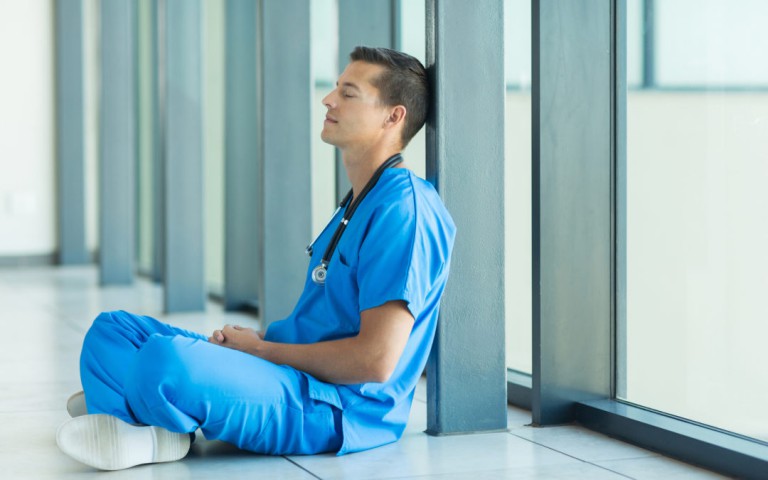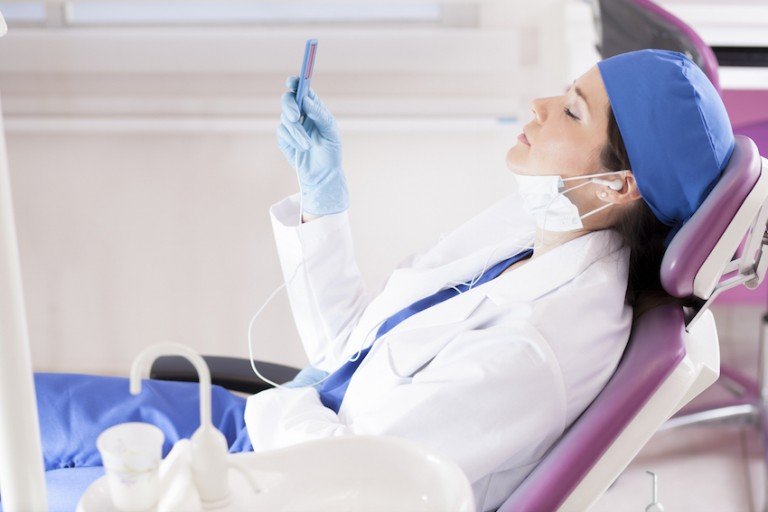Medical staff are most exposed to stress and overworked. Healthy life styles, social interaction and increased level of awareness will help you reduce anxiety and deal with stress. It has a double positive effect: patients are more likely to listen to physicians who are healthy. A physician who is mentally alert, energetic and maintains a healthy weight inspires a certain degree of confidence, researches have shown.
PLX Academy · Personal Experience · 15 February 2022

HOW TO ENHANCE YOUR WELL-BEING?
Life in the pandemic caused by COVID-19 is not easy at all. The consequences are felt all over the world, there are sad families, sick and people who have lost their jobs. The education of children and young people is disrupted. In addition to the physical, the mental health of many people is impaired. Feelings of anxiety, isolation, inability to cope with the situation, and loss of motivation for it have increased.
Most healthcare professionals often put patients first and make their job a priority over other things, including their health. This is admirable but comes with a price. Because of that, it is important during this period to take time to prioritize your own mental health and well-being, recognizing that it is more difficult to provide outstanding care for others when you are not adequately cared for yourself.
Well–being is not just a state of comfort, health, and happiness. It is probably a broader concept, a quality of life, which does not refer only to our happiness at a certain moment. Physical and mental well-being is the satisfaction of life as a whole, having a purpose and control over life circumstances. We will now show you how you can enhance your sense of well-being or improve your quality of life when you are under stress from things that are out of your control.
What you should do?
1. Exercise regularly
Patients are more likely to listen to physicians who are healthy and in good mood. Physical activity greatly affects your mood. When you are physically active, the hormone endorphin is released and this allows you to sleep and feel better. It is best to exercise in nature: in a park, by the river or at sea. Sunlight, especially in the winter months, improves your mood and has a positive effect on your health. If you do not want to be alone, you can exercise in a group or with friends so you will have the added benefit of social interaction.
2. Get adequate rest
Medical staff is most exposed to stress and overworked. Because of that, it is very important to relax with relaxation exercises such as yoga and Pilates. It will help you deal with stress and anxiety. Quality sleep is also important for your physical and mental well-being. Adults need seven to nine hours of sleep. If you have difficulty falling asleep, try to relax before going to bed by reading a book. Reducing the amount of time you spend in front of electronic screens gives your brain a chance to calm down and go into “sleep mode”.
3. Have a balanced diet
A physician who is mentally alert, energetic, and maintains a healthy weight inspires a certain degree of confidence. A healthy diet affects both physical and mental health. Eat lots of fresh fruits and vegetables. Cut down on foods that contain sugar, fat and salt. If you use stimulants such as alcohol and caffeine to deal with stress, it is wise to reduce them to avoid sleep problems and long-term anxiety.
4. Social interaction
Communicating with other people is important to your quality of life. After a long day spent with patients, make time to talk to family, friends, and colleagues – better directly than by phone or online. Laughter is a great way to relieve stress as it triggers the release of dopamine in the brain. Make room in life for fun and laughter. Helping others, giving support or expressing kindness is another way to reduce the effects of stress.



5. Increase the level of awareness
Concentration is very important for medical staff. It can be enhanced through an increased level of awareness by using meditation techniques. This will make it easier for you to deal with stress and anxiety and improve your mental and physical well-being. These techniques allow you to focus for a moment in the present and thus become more aware of what is happening around you, of your thoughts and feelings. Thus, you can get an accurate picture of what is happening to you and more easily transform negative thoughts into positive ones.
6. Do something for yourself
Most healthcare professionals often put patients first, but in the daily routine, you should find a place for something you enjoy doing, which is not an obligation. It can be: reading a book, working in the garden or going for a walk. You can start with a new hobby or with activities that increase your self-confidence.
7. Express your gratitude
For everybody, expressing gratitude is the best way to live happily. Expressing gratitude daily is especially good when you face challenges or difficulties. It can help you focus on what you have instead of what you do not have. Express gratitude to other people. In this way, you deepen the relationship and cause a wave of positive effects around you. An easy way to express gratitude is to write down three things you are grateful for each day. You can send a thank you message to someone. All this will make you happier, will provide you with physical and mental well-being and a better quality of life.
8. Ask for help
Medical staff are also people who sometimes need help. It is normal for everybody to be anxious sometimes. But if these feelings increase, and you cannot overcome them yourself, you should seek help. You should not be embarrassed or ashamed to seek help from a family member or friend, and consult a mental health professional
